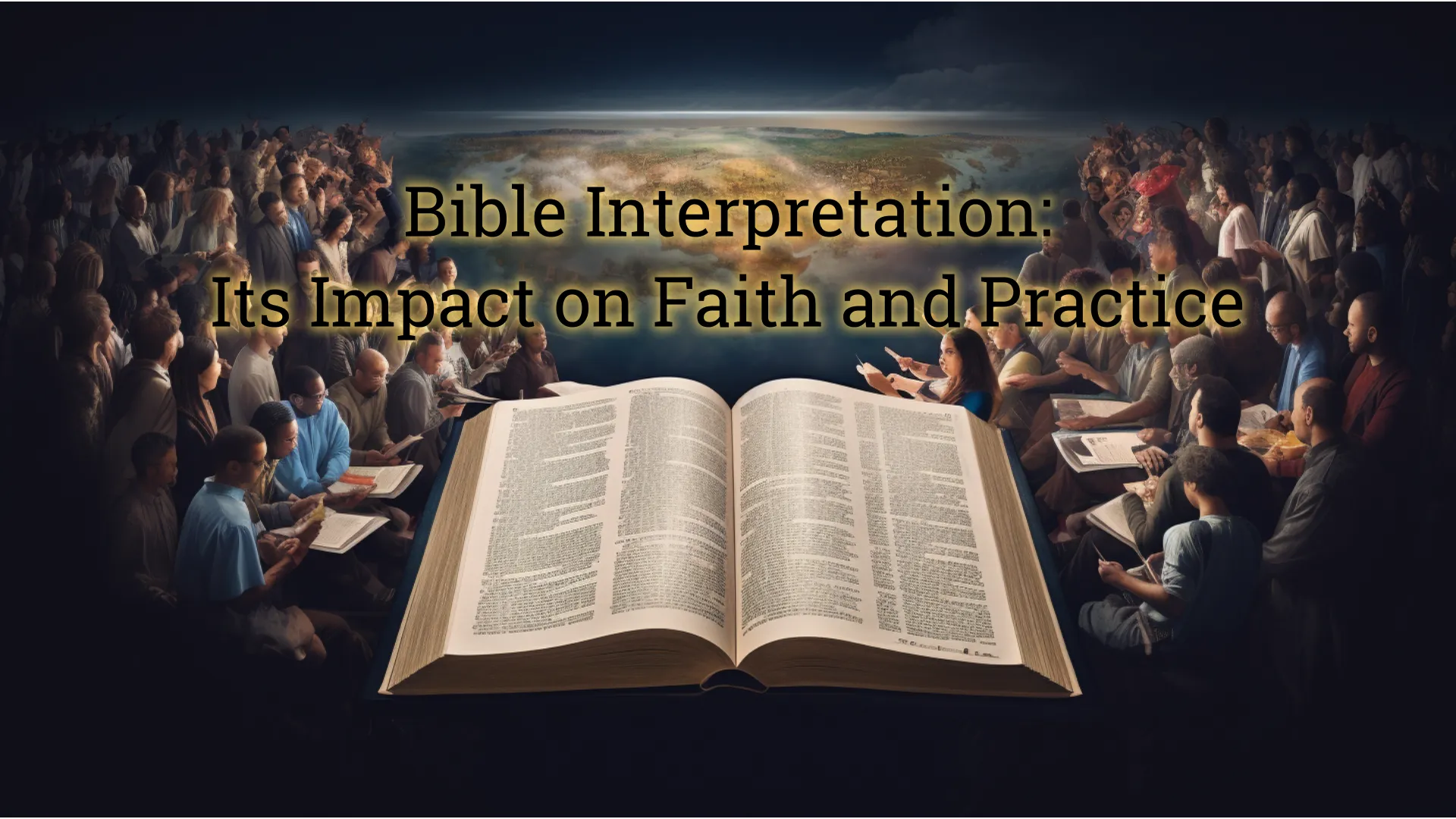Beyond the Myth: Seeking a Soulmate and the Significance of Romantic Attraction
Are you looking for a lifelong committed romantic relationship? In "Beyond the Myth: Seeking a Soulmate and the Significance of Romantic Attraction" we examine how the idea of finding 'one true love' can create unrealistic expectations and even prepare individuals for divorce rather than committed marriage.
Transcript
Introduction to Home and Family Lessons
I'd like to continue a series of lessons about home and family. A lot of the thoughts from these lessons are drawn from a book that was written by Brad [Wilcox]. The short title [of the book] is "Get Married." He's a sociologist who is taking the principles of what makes marriage work and what doesn't from studies done in sociology, as well as looking at the mainstream messages in our culture and saying, " there's a mismatch." Our culture is saying these things. The reality from the data sociologically is this. This book was written, to identify some myths that are currently present in our culture. He did a really good job in identifying those myths and the problems that they create in our society
That's not just a society topic, but is a moral and spiritual subject. The family is the foundation of human society and central to God's purpose for human beings and for the well being of children and the future of society.
So in our lesson this morning, we're going to look at another myth.
In previous lessons, we looked at the myth that marriage is not good for men and women.. Another myth that we looked at was the myth that the marriage is not good for Children. And then most recently we looked at the myth that all family structures are of equal value in raising Children. And we looked at each of those from the standpoint of what does sociological data say? What is the actual outcome for men and women, for children and for various family structures, and also looking at what the Bible had to say about those things.
The Soulmate Myth
And this morning we're going to be looking at what can be described as the soul mate myth. And when I was growing up, the soul mate myth was called looking for your one true love. Some of the things that I'm going to say about my romantic past are slightly mythologized. But when I was growing up, you were looking for your one true love.
That was the idea that there was one person that was right for you. And if you found them, that love, joy, and happiness was guaranteed and that you would live, as they say, "happily ever after."
in my case, as a young man, I was able to think more objectively about this idea than most of my peers because all of the eligible ladies within three counties had notified me by registered mail that they were not my one true love. So I had lots of extra time when I would otherwise be seeking for and enjoying my one true love to think about this concept and whether it was really serving society the way it could have, and to think about the effects of this idea on the culture of dating and marriage.
Problems with the Soulmate Concept
And the first problem with the one true love concept is if there really are eight billion people in the world and only one of them is the right one for you, then you're going to have to meet an awful lot of people to have any hope of actually finding him or her.
But the bigger problem with the concept of one true love was that this idea didn't really prepare people for committed marriage but instead prepared them for divorce.
Why is that? For a young person who believes in the concept of one true love and is pursuing it of course, they're going to be overjoyed when they find someone who might be their one true love. They're attracted to someone. They ask themselves, "Is this person also attracted to me? Is this my one true love?"
And if they are attracted to you as well, then joy of joys, you may very well have found your one true love. How can you know for sure? You date them, you get to know them, hopefully fall in love and getting married was a way of saying, " I found my one true love. We were meant to be together forever."
So suppose this young couple starts dating for a few months, they're totally head over heels in love with each other. It looks like they had found their one true love. But there's a problem. There's some conflict that they can't resolve and they break up.
Now that would be a disappointment under any circumstances. But when you're convinced that this person was your one true love, you're not just losing a relationship, you're facing the disillusionment that the person that you thought was your one true love wasn't really.
But a few weeks or months later, you meet someone new. There's mutual attraction. You have hopes again that perhaps now you finally found your one true love. You experience relationship bliss for several months or maybe even a year., But there's a fly in the ointment. No matter how strong the romantic feelings you have in your new relationship, there's in the back of your mind, this realization that the last time you were so sure that was the right person, it turned out not to be the right person.
And in this new relationship, you have conflict and you can't resolve it and break up again. Once again, this person you thought was your one true love wasn't after all. Heartache, disappointment, and disillusionment.
Suppose this young person has 20 such dating relationships, and then the 21st relationship lasts for months or years. No major conflicts arise, so they get engaged. A few months or years later, there's still been no major conflicts, they can't resolve, and so they get married. Now they know that they found their one true love, right?
Fast forward a few months or years when significant conflict does arise. What will happen? The last 20 times there was major conflict, what was the conclusion? The conclusion was this must not be my one true love. But now you're married and having conflict. On top of the challenge of the marriage conflict is this realization, "I may have made a huge mistake. I've married someone who isn't really my one true love." With that mindset and that relationship history, how much effort will they put in to make that marriage relationship work out?
One true love sounds good. I was brought up on that. But there are some challenges with it, it can lead to some serious problems.
Now in the case of our study today, that concept is now called having or looking for a soul mate.
And you may ask why the rebranding? My guess is that there are two aspects of the one true love that's fallen out of favor Why one? How can one person really satisfy all your needs for a lifetime? Why not several? And also the concept of truth has fallen out of favor as well. So it is soulmate.
How many people are seeking for what might be referred as a soulmate? One survey reported that among Americans in their 20s who have never been married, 94 percent said they wanted a soulmate first and foremost. In the same survey, 88 percent agreed that there was a special person, a soulmate waiting for you somewhere out there and 87 percent thought that they would find that person when they were ready to get married. Sociologist David Popenoe is quoted in the article reporting on that survey result having this to say, "that's a big change from times past when you hoped a spouse who would be a soulmate by the end of life. But you didn't start out looking for such a person. You were looking for someone responsible and reliable who would be a helpmate for the task of life." And so that's a apt description, I think, of this shift in perspective.
The Popularity and Problems of Seeking a "Soulmate"
And this philosophy is now so ubiquitous that many people don't realize that this wasn't always the normal way of thinking about marriage. But it's an aspect of a very prominent worldview in our world, called expressive individualism that is underlying much of our culture today. And that's defined as "the belief that humans are defined by their individual psychological core and that the purpose of life is allowing that core defined social expression in relationships and that anything that challenges the self's desires is deemed oppressive." That idea of seeking happiness as expressed in our relationships as our primary goal is underlying this soulmate model of marriage.
Because of that, --this idea that. I'm seeking for someone who is going to make me happy, be the right person for me-- if I find the right person, oftentimes the assumption is that then sustaining a happy marriage, shouldn't require a lot of effort or work. That contributes to the problems of this view, because If I found, the right person, I won't have to put a whole lot of work into being happy and making the relationship work.
That causes real problems when there is serious work that has to be done and challenges arise. One survey of married people found that husbands and wives who took the soul mate view were actually about 90 percent more likely to report doubts about the future of their marriage. And we can understand why.
The assumption was, if I found the soul mate, life would be easy, marriage would be easy. With those expectations not being met, then naturally that would cause doubts about the future of their marriage. Another survey found that husbands and wives across America following the soulmate model were twice as likely to report that they were divorcing or likely to divorce in the near future.
So, this soulmate model of marriage, it is very prevalent , but it also is not working! People who have that view within marriage, it's making them frustrated with the fact that their marriages are having conflicts in spite of what they thought was going to take place.
The Meaning of Romantic Attraction
Let's talk about the fact that a lot of our relationships start with this strong romantic attachment. That's a big part of what draws us to one another. Understanding what that's about and what its purpose is will help us to manage our expectations and understand what is going on there.
When you, as a young person, run into somebody and there's some strong romantic or mutual attraction there. What does that mean?
It means this person that we've met and are getting to know might be a good mate and marriage partner for us.
That experience of what we sometimes referred to as falling in love-- strong romantic attraction-- is a beautiful part of human nature as well as human relationships that God designed for our good. And we find it mentioned a few places in scripture, but especially in the Song of Solomon. For example, in Song of Solomon 1:15 where he says to his beloved, "Behold are fair, my love, behold you are fair!, You have dove's eyes!
And in chapter two, verse five, she responds, "Sustain me with cakes of raisins, refresh me with apples for I'm lovesick. His left hand is under my head. His right hand embraces me. I charge you, daughters of Jerusalem, by the gazelles or by the does the field do not stir up or awaken love until it pleases."
God has created human nature to respond in these ways when new relationships are being formed. And scientifically, there's massive levels of hormones that cause emotional bonding and connection to occur when we are experiencing those type of things. Why is that? Because forming a relationship like a long term commitment like marriage requires an awful lot of strong motivation. The way the Bible describes it in Genesis chapter 2 is it involves A man leaving his father and mother and cleaving to his wife and the two becoming one flesh. That's never an easy thing to accomplish. It requires an awful lot of pursuing, a lot of overcoming obstacles to set up and establish a new household with this man and this woman bound together for life. To help make sure that takes place so that future generations of human beings can occur. God has made human nature in this way.
When Adam saw Eve, God brought her to him and he said, "this is now bone of my bones, flesh of my flesh." That was him saying, "This is amazing"! This is wonderful. God's gifts are so good"
These natural experiences that we have mean that there's a potential for a relationship there. Now, let's talk about what it doesn't mean. Strong romantic attraction does not mean that you have found the one person who you are meant to be with or that God has chosen for you.
For example, if this person is already married, It doesn't matter how strong a romantic attraction you have, that's not the person for you. You or the other person may not be able to lawfully marry for other reasons. In situations like that, we have to consider the fact that there's some attraction there but there is no right way to pursue it.
There it also may be the case that you or that other person may not be emotionally mature enough to be involved in a committed relationship at that period of their life.
So strong romantic attraction does not mean that you have found your one true love or your soulmate, it means you might have. So there, has to be a period of consideration and judgment and using wisdom along with enjoying that romantic attraction to determine if that is the case.
Strong romantic attraction also does not mean that a healthy long term relationship with this person will be easy, come naturally, or require little work or sacrifice. That's why the soulmate model, the way it's presented in our society, is dangerous. It creates this unrealistic expectation. When real life occurs, causes disillusion, disappointment, and for some causes them to say, "Wait, I've made a mistake. If it's this hard, then maybe I shouldn't even be married to this person."
Strong romantic attraction also does not mean that warning signs about the other person's character can be safely ignored. We need to be careful take heed. Take counsel with God. Be praying, " is this the right one that you intend for me?" taking counsel with your parents, with your grandparents, with your trusted brothers and sisters in Christ, when you're considering serious long term relationships so that you can have the benefit of their counsel and receive God's best for you.
Where the Soulmate Model Falls Short
There are two important truths that the soulmate model misses.
The first is that the passionate feelings of falling in love are not permanent or continuous. That passion and happiness we experience in romantic love fades over time. Actually those feelings are biologically creating hormones like dopamine, norepinephrine and oxytocin that give us a relationship induced high. These hormones make us feel happy but that hormonal high doesn't last forever, although it is something that can recur in a healthy relationship.
In most relationships, the peak of romantic passion is losing its edge at the same time as the reality of life is peaking. Early on we're idealizing someone and holding them on a pedestal. But then later we realize, wait a second, there's some habits they have that I'm not so crazy about and things that get on my nerves. How do we handle finances and how do we handle disagreements about our our in laws? . All of these challenges are real and require relationship skills and maturity and two individuals who are focused on each other and the good of the relationship more than their own individual happiness and satisfaction.
Another important thing that the soulmate model misses. is the reality that pursuing happiness directly is not an effective way. Instead, pursuing worthwhile goals that are bigger than ourselves is a much surer path to happiness.
If we're looking for Mr. Right, because they're going to provide endless happiness in our lives? They might. But the most likely way that will happen is if you get into a long term healthy relationship and Mr.. Right convinces you that serving and being good to other people is more important than experiencing whatever level of happiness or pleasure that we're interested in.
For that reason, one of the most important things that marriage does for society and for each of us is to call us out of ourselves and to give us a training ground for overcoming the selfishness that we naturally are born with or develop very early in life. And what a wonderful blessing that training ground is!
The Biblical Perspective on Marriage
Let's turn together to Ephesians chapter five and look at what God intends marriage to be and think about it from this perspective. I mentioned earlier that romantic attraction does not mean that the other person has good enough character or strong enough character to be involved in the long term relationship.
I've said many times that I'm really grateful that Rachel didn't meet me earlier in my process of becoming mature. Earlier in life, before we met, I was a very prideful selfish type of person --more than I would really care to admit. That was the reality.
It took some knocking off of some rough edges. Rachel's been working hard ever since she got a hold of me to help me with what remains of all of that.
But this is what God intends for the marriage relationship to be. It is a means that God uses to make us more of what He would have us to be. And this is especially true in Christian marriages, but it is one of the blessings of marriage whether we are in the body of Christ or not because it calls us to care about others more than ourselves and shows us how important and good and how rewarding that is.
And so here in Ephesians chapter five, verse 22, we read "wives submit to your own husbands as to the Lord for the husband is head of the wife, as also Christ is head of the church, and he is the savior of the body. Therefore, just as the church is subject to Christ so let the wives be to their own husbands in everything."
Is being a wife as God intended pursuing your own personal desires and happiness above that of your husband? No, it sounds like the opposite!. It sounds like the wife is to be in submission to her husband and as the church is to Christ.
Maybe the husband is the one who gets to have his way and pursue his own personal happiness and maybe that's the way God intended marriage to be. Well, keep reading! What does it say about the husband?
Verse 25, "Husbands, love your wives, just as Christ also loved the church and gave himself for her, that he might sanctify and cleanse her with the washing of water by the word, that he might present her to himself a glorious church, not having spot or wrinkle or any such thing, but that she should be holy and without blemish. So husbands ought to love their own wives as their own bodies, for he who loves his wife loves himself."
That does not sound like the husband being able to pursue his own desires at the expense of the wife. That sounds like an awful lot of sacrifice! Loving your wife as Christ loved the church and gave himself for her? What level of sacrifice did Christ make for the good of the church? He died on the cross, sacrificed his entire human life for the well being of the church, and that's the model for what marriage should be.
With respect to the wife, the model is the church submitting to Christ. In the case of the husband, the model is Christ sacrificing and giving himself for the church. So like I said, if we're going to try to live this way in a marriage relationship, we're going to have to overcome a lot of selfishness, and say, " there are things that I want, of course, there's a lot of things that I want. But what do WE need?" That's true from the standpoint of: what does my wife need? In her case: what does my husband need? And also in the sense of saying: what does our marriage need? That relationship that has its own life, even separate from the husband and wife individually. And then when there are children involved, it is: what does the family collectively need? What do these children need? And all of those things are filtered. along with, what are the things that I want along with what are all these needs.
We say to ourselves, "You know what? There's some things that I'd like to do. And maybe I'll get to do some of them. But what is much more important than me getting to do all the things that I want to do is making sure that this family that God has joined together in His sight gets what it needs and that my wife gets what she needs and our marriage together gets what it needs and that our Children get what they need."
Now there's a part of me that would be happy to just have my own way all the time. And that's why marriage has been very good for me because it's given me lots of reasons to say to my selfish self: "Wait I'd like to do this, but wouldn't it be better to sacrifice for the people around me?" And has given me many opportunities to experience doing that, and saying to myself and reflecting, " that's really rewarding to set my own personal desires aside for the sake of other people!" And I needed a lot of training in that way. That's one of the reasons why marriage has been very good for me.
There's a lot of human beings who need that type of training. And that's why marriage is so good for society. in general.
But we can really undermine it if we're coming at it from this other perspective. " I'm so glad I got married because now all my needs are going to be fulfilled!" that's really shooting marriage in the foot. We're married, yes, to get our needs and desires fulfilled, but in doing so, we're being bound to another human being made in God's image who has as many and just as valid needs and wants as we have, and now we are joined together in marriage there is this relationship between us that has its own needs as well that need to be considered. And if God blesses that relationship with children, now we have another set of responsibilities and blessings that will call us out of ourselves into service to others.
If we do that in a healthy way you know what? those romantic feelings that got us to take the risk of entering into this brand new relationship and form this new household. Those romantic feelings, the healthier our relationship is with our spouse will be able to revive and experience that passion and romance years into the future.
There's a beautiful picture of this in Proverbs chapter five. The focus of the chapter as a whole is to avoid sexual immorality but he gives instruction here in chapter 5, verse 15, "Drink water from your own cistern and running water from your own well. Should your fountains be dispersed abroad, streams of water in the streets? Let them be only your own and not for strangers with you."
He's using the picture of drinking from your own well to metaphorically say, "Keep your sexual desire and sexual expression within the relationship with you and your wife, not with strangers on the street or anyone else."
But then he goes on to say in verse 18, "Let your fountain be blessed and rejoice with the wife of your youth. As a loving dear and a graceful doe let her breast satisfy you at all times and always be enraptured with her love."
In our society the stereotypical observation is that if you want passion and romance the last thing you want to do is get married! That's what society says, that marriage destroys that passion or that fervor or desire. That's not the case! You build a healthy relationship with two human beings of good will who have sacrificed their own personal needs and wants for the good of one another for years and years, that doesn't throw water on the fires of romance and passion, that throws gasoline on the fires of romance and passion.
So he says here, "Rejoice with the wife of your youth!" the presumption is you're not young anymore. But they're still rejoicing in that romance and passion that God. intended to help us get those relationships started, and he intended as part of the rewards of maintaining a healthy relationship as God intended.
Conclusion: Overcoming Selfishness in Relationships
One of the most important things we've talked about marriage , is that it calls us to overcome our natural tendency towards selfishness. In doing so, it makes us better people and glorifies God [That] is true of every human relationship that we have. Every person that we meet is an opportunity to view them as somebody who is there maybe just to fulfill my needs and wants or to view them as a real human being made in the image of God whose needs and wants are just as valid and just as important as mine. If I can step out of my selfishness into saying, "How can we interact in a way that will meet all, both of our needs?" So that we are acting in, not a dependent or codependent way, but in an interdependent way, then by serving one another, we can glorify God, act in ways that will teach ourselves: I don't have to be selfish. In fact, being unselfish is even better.
That's true in marriage and it's true in all of our human relationships. And so I wanted to make that observation so that everyone will have something to go home with whether we're part of a marriage relationship.
I hope this lesson has been encouraging to you.






